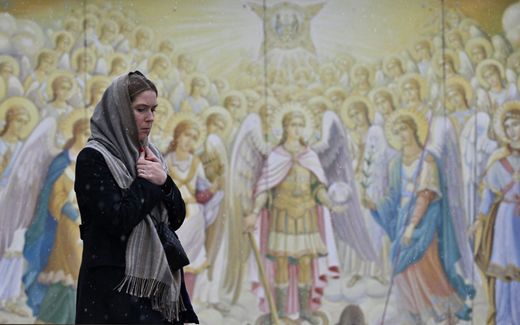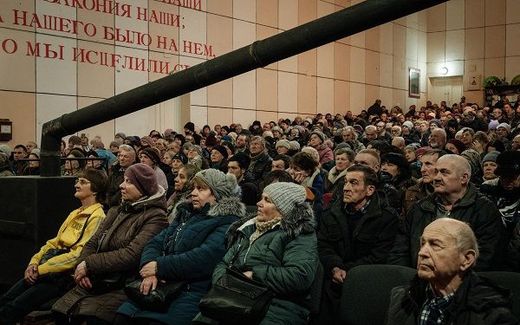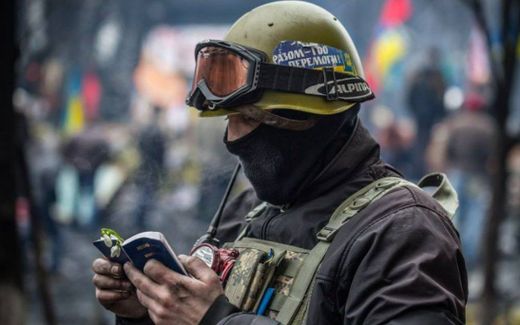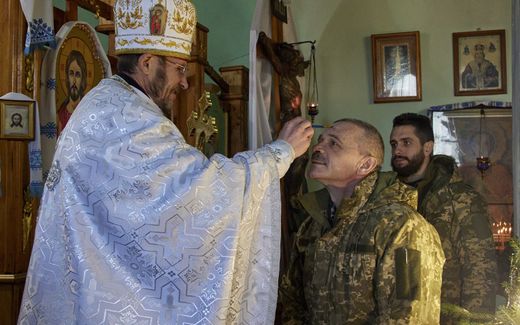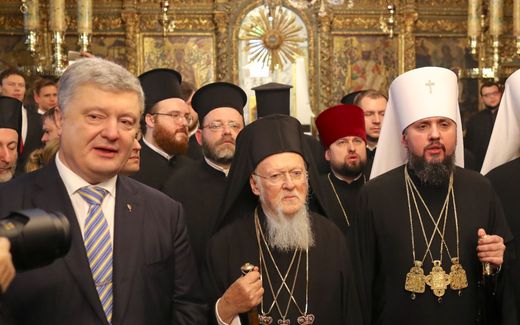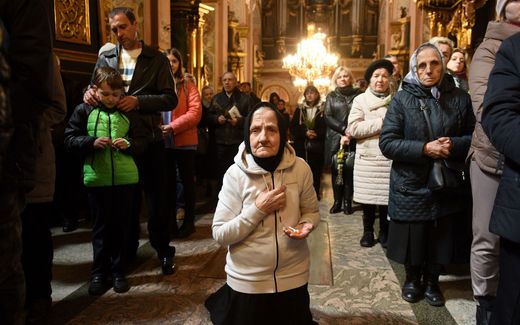Tensions rise as Ukrainian government demands Moscow-connected church to leave ancient monastery
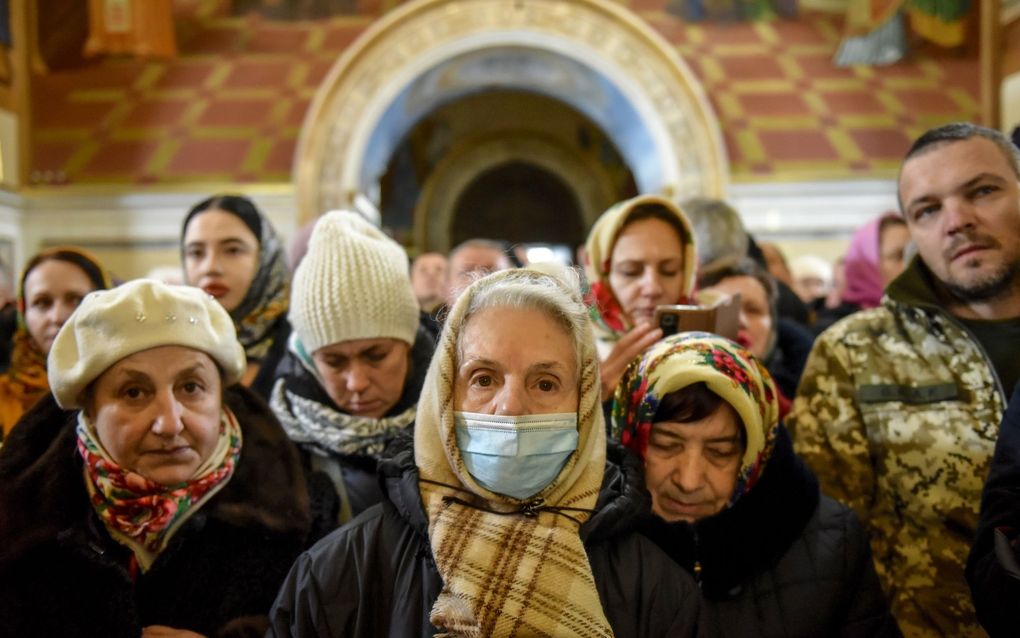
Orthodox believers love to come to the 'holy' Lavra in Kyiv. Through the ages, thousands of Orthodox worshipers have come there. Photo EPA, Oleg Petrasyuk
Eastern Europe
The Ukrainian government has put the issue with the Ukrainian Orthodox Church (UOC) under high pressure. The church has to leave the monastery Kyiv-Pechersk Lavra at the latest on March 29. It is clear that the church is not willing to obey that order.
Kyiv-Pechersk Lavra is a world-famous complex of ancient buildings. The UOC (that is on paper still connected to the Moscow Patriarchate) has its headquarters there. Officially, the church rents it from the state, but the state is demanding it back in order to lease it to the Orthodox Church of Ukraine (OCU).
The OCU is a newly formed community from 2018 that is connected to the Ecumenical Patriarchate in Constantinople. The church was formed under the influence of then President Poroshenko to reach spiritual independence from Russia.
President Zelensky was chosen with a much more moderate agenda than Poroshenko and has tried to keep his distance from the church issue. But since the Russian invasion in February 2022, it was no longer possible for him to keep the church issue away from him. For a couple of months, his government has been on a path to put the UOC under pressure.
Traitors
The issue started with several private members’ bills in the Parliament to ban the Moscow-connected church after several city councils had clearly spoken out against the church. The matter was that this church was seen as a community of traitors because of its relationship with the Russian Orthodox Church (ROC).
On its part, the church has left no doubt about being on the side of the Ukrainian government. After the invasion, the Primate of the UOC, Metropolitan Onufriy, condemned the war in the strongest terms. Multiple parishes have given clothes and food to the army. And in May last year, the church cut as many bonds with Russia as possible by changing the statutes.

The problem, however, is that the other party in these agreements, the Moscow Patriarchate, has not changed the statutes. For this reason, Patriarch Kirill still sees himself as the father of the Ukrainian Orthodox Church.
By the way, national branches of the Eastern Orthodox Church are relatively autonomous from each other. Their relationship is not comparable to the situation in the Roman Catholic Church.
Suspicious
From November onwards, the Ukrainian police did some searches in monasteries and found quite some suspicious pro-Kremlin material. That suggests that not all UOC clergy were as patriotic as the spiritual leadership would want them to be.
After that, the government supported the initiatives to ban the UOC. From the United Nations, there was a signal that this would not be wise, but the government of Zelensky has not changed direction. That means the Parliament will vote on a bill to limit the space for the UOC soon.
Humiliation
Leaving the Kyiv-Pechersk Lavra is a highly sensitive issue among believers. This place has been seen as holy throughout the ages of Orthodoxy in Russia and Ukraine. And because of that, it is highly symbolic too. Of course, the church will see this as an utter humiliation to leave it.

According to Zelensky, the church must leave this complex; otherwise, all the relics and other treasures could be taken by Moscow. “We will not allow a terrorist state to have at least some opportunity to manipulate the spirituality of our people, destroy Ukrainian shrines –our Lavras– or steal any valuables from them,” he said, according to the Union of Orthodox Journalists. His statement implies that the UOC indeed works together with the “terrorist state”.
“Ticking bomb”
The UOC clergy working and staying in the Lavra have made it clear that they will not leave the building without protest. The government has said that the only way to stay is by shifting from the UOC to the OCU. Otherwise, the clergy have to leave.
The Orthodox Journalists quote the political scientist Vadim Karasev, who warns that the stakes will get too high. “Such steps by the authorities will not solve the Ukrainian religious issue, but rather exacerbate it, turning it into the category of a “ticking bomb,” Karasev says.
Related Articles


